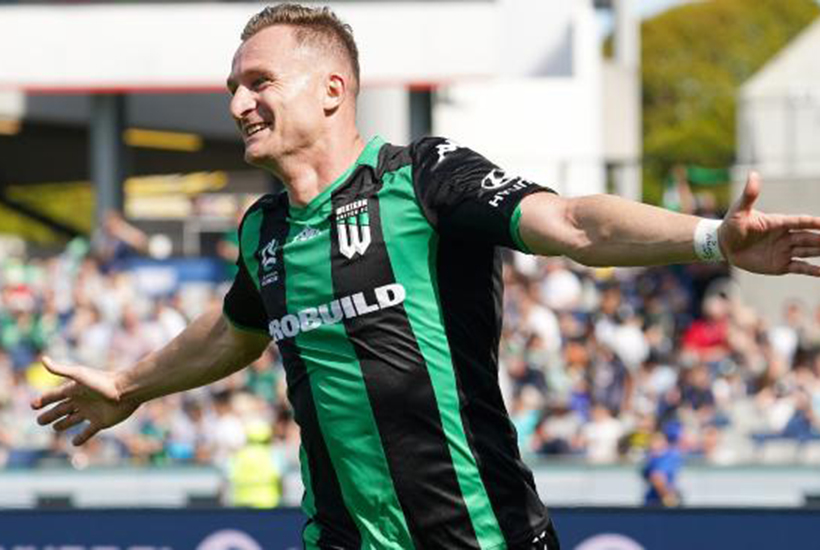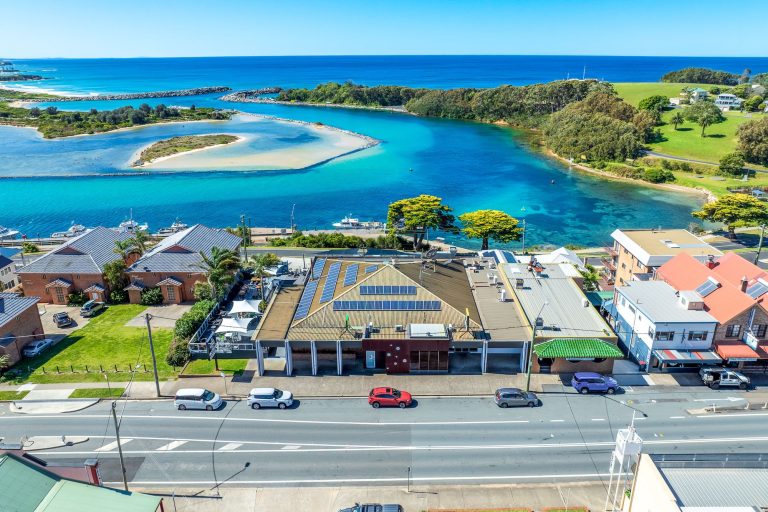Pendlebury, Dante Exum among Western United A-League investors

They’re the trio of 40-something schoolmates from Melbourne’s northwest trying to pull off a first in Australian sports business: a privately owned $180 million stadium surrounded and funded by more than 40ha of residential and commercial property.
A-League soccer club Western United have huge plans, and quite a few sceptics who say they will never see a shovel in the ground on what is currently a cow paddock and that the A-League’s newest club is a disaster in the making.
Yet Western United chairman Jason Sourasis is adamant he and his team, who this week marked 12 months since being awarded an A-League licence, have the nous and funds to pull off what would be a groundbreaking Australian sports project.
Commercial Insights: Subscribe to receive the latest news and updates
In an interview with The Weekend Australian, Sourasis reveals for the first time some of the investors behind the fledgling club include prominent AFL footballer and Collingwood captain Scott Pendlebury, North Melbourne captain Jack Ziebell and NBA basketballer Dante Exum.
Along with Sourasis’s fellow club directors John Tripodi and Levent Shevki — the trio attended the Melbourne private school, Penleigh and Essendon Grammar, together — Sourasis and his investors have so far put $30m into Western United.

Western United investors John Tripodi, Levent Skevki and Jason Sourasis
Eventually at least $100 million will be raised in total from wealthy investors and family offices to kickstart a residential property project that will ultimately help underpin the construction of a 15,000-capacity soccer-specific stadium built by construction firm Probuild and designed by architects Populous, all part of a private-public partnership with Wyndham City Council.
In a country where all the big arenas are owned by state authorities bar the AFL’s Marvel Stadium in inner Melbourne, Western United plan within five to six years to control their own stadium, and all the revenues associated with it, and be surrounded by several new apartment blocks, housing lots, a large hotel, commercial office space, shops, bars and parkland.
Sourasis insists the project in Melbourne’s western suburb of Tarneit, about 30km from the CBD, will gain the necessary government planning approvals — and raise sufficient capital — to build a huge mixed-use project with an end value potentially in the billions of dollars on more than 60ha that he hopes to have under construction by the middle of next year.
“We acknowledge the enormity of this project and some people may find it difficult to get their head around it,” Sourasis says.

“The development plan we’ve proposed, and the way we are executing that plan, has not been undertaken before in Australian professional sport. The reality is that projects of this scale are never easy or straightforward. We are well aware of the tight timelines around stadium design and construction, and I’m pleased to say that we are on track and progressing to plan.”
Sourasis and his two fellow directors head the private investment fund that owns 85 per cent of Western United, with founders Steve Horvat, a former Socceroo who is head of football, former KPMG partner Maurice Bisetto and football agent Lou Sticca each holding 5 per cent stakes.
An investment adviser who has made good profits on several commercial property deals in recent years, Sourasis is a one-time owner of a sports management agency who heads Jaszac Investments, which has clients who have invested in sporting, property, marketing and entertainment assets.
Tripodi is the chief executive of the Twenty23 marketing and media agency, which has Eddie McGuire and Paul Dainty among its board members, while Shevki is a commercial lawyer and partner of law firm Cornwall Stodart and director of AFL club Western Bulldogs.
Sourasis says the trio has long either played soccer or been fans of the sport and kept an eye on the A-League as it has grown and more recently hit some significant hurdles. The three were introduced to the investment opportunity before Western United was awarded an A-league licence by Football Federation Australia 12 months ago.
The $30 million raised from investors helped pay the $18 million expansion fee to FFA and working capital for the current season — during which the club is playing home games in Geelong and Ballarat and is likely to lose at least $5 million — and beyond.

Besart Berisha of Western United gets the ball past Victory goalkeeper Lawrence Thomas earlier this month in Geelong, Australia. Picture: Getty Images
While Sourasis and his directors have mostly avoided the limelight in the past year, he says they have been busy behind the scenes working with Wyndham Council, with which they have struck a deal for the parcel of land (he will not reveal terms) and last week achieved a major step with the completion of site inspections including soil tests, fauna and flora and geotech analysis.
Next comes gaining planning permissions, works permits and finalising a draft masterplan for the precinct. Sourasis says his group will either raise funds to build the project or could sell a stake to a property developer.
That would release funds to build the stadium, which they hope to be in within about three years, and a commercial precinct that could include a hotel, shops, restaurants and bars, as well as a training centre for the club and potentially an indoor sports arena.
If it sounds far-fetched in an Australian context, Sourasis says the Western United group is merely borrowing a model common in the US, where club owners across major sports such as American football, baseball, basketball and soccer own their venues and have developed a range of revenue-generating property projects on surrounding land.
Even so, there have been rumours of cash flow problems that have seen players paid late this season — Sourasis denies this — and that Chinese money or even Middle Eastern investors are ultimately behind the project.
Sourasis says all the investors are Australian, though the original concept was worked on by a Hong Kong consortium before they withdrew from bidding for a licence last year.
Ultimately, Sourasis insists sufficient funding will be raised.
“Football has a long history of naysayers that are driven by their own agendas,” he says. “I acknowledge what we’re attempting is not an easy task, but we are having a go. I would not have involved myself in this transaction if I thought it wasn’t a good deal.”
This article originally appeared on www.theaustralian.com.au/property.







